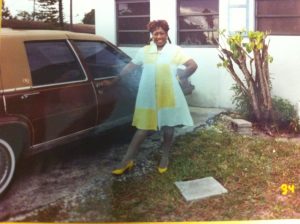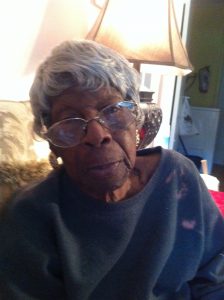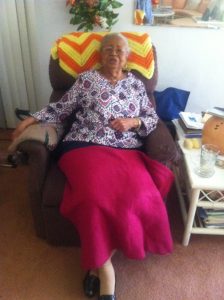
Sitting beside the bed of her hospitalized husband who was being treated for brain cancer, the mind of Dr. Sharony Green, an associate professor of history at The University of Alabama, drifted back to a simpler time and place.
Though her eyes rested on her husband, all she could see were mental pictures of miles and miles of alabaster sand. Erected in the middle of it, like an oasis, is a small boondocks in Miami-Dade County, Florida, known as the Baa Haas.
“Home,” Green said.
She picked up a pen and began tinkering with a proposal about the Baa Haas — expanding on the ethnographic work she had begun on her childhood neighborhood and the spatial and racial politics in Florida in 2013.
Watching close family members battle illnesses — they have since improved — emphasized the importance, Green said, of research closely linked to relatives and home.
In January, the proposal, “The Baa Haas,” won Green a rare and prestigious honor. She was awarded the 2020 PEN/Jean Stein Grant for Literary Oral History, an award recognizing a literary work of nonfiction that uses oral history to illuminate an event, individual, place, or movement.
The winner receives a $10,000 grant meant to help maintain or complete an ongoing project. PEN America has awarded grants to only four winning projects to date, with Green the only award winner in 2020.
“This is what this valuable project is about: it allows us to hear the voices of the women and men of a relatively unsung and yet very important community,” the judges wrote of Green’s work. “It gives the community access to public discourse, and gives us readers access to an unforgettable history and a fascinating culture.”

Green said it’s an honor to share the story of the Baa Haas, and she’s glad that others found value in it.
“The Baa Haas is a very small community a stone’s throw away from Hard Rock Stadium and not too far from the Everglades,” she said. “It is where African Americans moved in the late 1960s enabled by the Fair Housing Act of 1968.
“What’s significant about this is white power brokers wanted us there as early as the 1930s, but it wasn’t until they built beautiful starter homes for whites that we finally showed up.”
Green said a battle for the Baa Haas ensued when two federal initiates collided. The GI Bill, which at the time helped mostly white war vets buy homes, clashed with the Fair Housing Act, which helped blacks buy homes without discrimination.
“When my family moved into that home in 1972 – the year of the Miami Dolphins perfect season – I can tell you that it wasn’t intended for us,” she said. “We could see the neighborhood changing.
“When a family moved there in 1968 there were no white families, but another family who moved there in 1967 said there was nothing but white families there. The demographics of the neighborhood changed just that fast.”
When Green arrived at UA on a tenure track in 2013, she began her research. Plugged into Facebook, she exchanged stories with black and white people who lived in the Baa Haas with great fondness and decided to deepen her ongoing research on “home.”
Specifically, her research is about tracing black racial and spatial politics in South Florida and how black Americans make claims to power, which is generally through home ownership, she said.
“I interviewed 36 people in two years, finishing in 2015,” she said. “My oldest interview was a woman on the eve of her 100th birthday. Most of these families came from the rural South, working as domestics, and they ended up in South Florida getting well-paying jobs.”

The first article on her research was released in 2017 in the Journal of Urban History. Near this time, both her mom and husband were battling different illnesses.
“A lot of my family members are passing away, and they’re telling stories,” she said. “It’s almost like the elders are telling us ‘don’t forget us, tell our stories.’”
With the grant award, she plans to interview additional people of African descent in the Baa Haas and find meaning in their postwar settlement in starter homes intended for white residents.
The $10,000 will be used to hire a transcriber and pay food and temporary housing in Miami-Dade County while she conducts her research. She would also like to apply the grant toward the creation of a short documentary that will allow her to share the project on diverse platforms.
“I don’t mind sharing my content in that way because professors have to do more than write books if they want more people to understand their research,” she said.
To watch a short film explaining some of the aims of Green’s research, see her YouTube channel.
